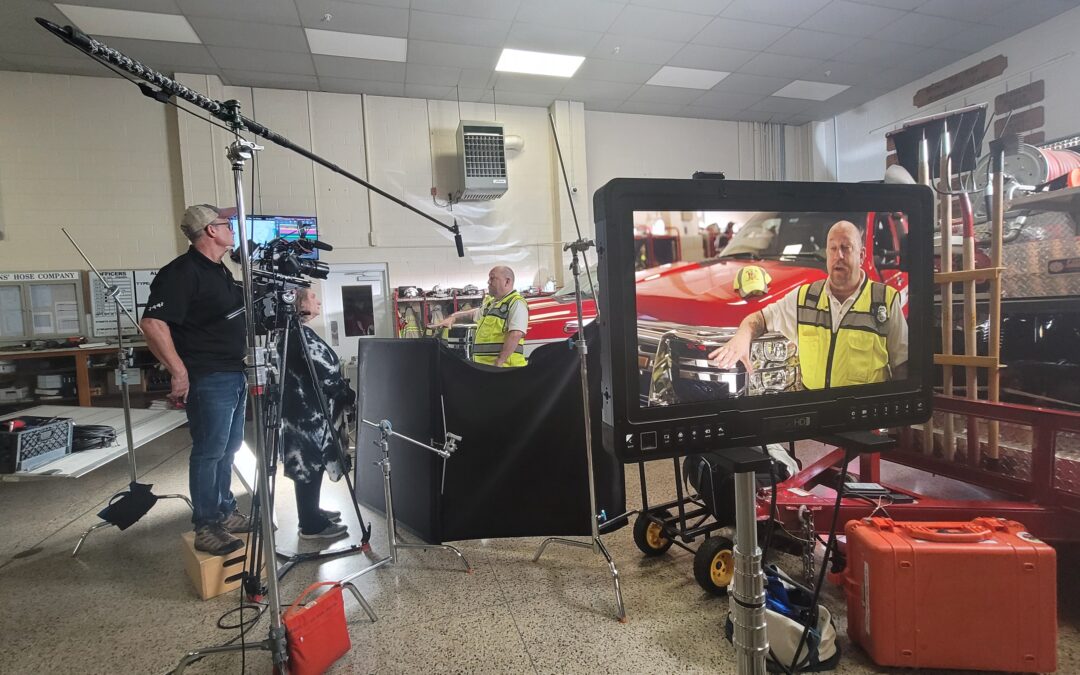Hey, it’s my first freebie! post. My interview tips today are drawn from 20 years of interviewing experts. I know what makes a great interview and how to give the interviewer what they need to produce an interesting, insightful story about you! So, if you are going to be interviewed for a podcast or video, here are my interview tips to make it go smoothly! For the purposes of this blog, I’m assuming your interviewer is friendly, fair, and forthcoming. These tips are not for when an uninvited reporter shows up at your door. That’s a whole other thing entirely. I’m also assuming the final product will be audio or video (not a written interview or article where you are quoted). So here are my top ten interview tips to make you a great interviewee!
1: When you are contacted with the offer, take time to research the person/show/organization who will interview you. You don’t want to be surprised by where your words are appearing. Do the research before you formally accept.
2: Know what the interview is about and for. Ask questions of the person who will be interviewing you so you understand what is expected of you and what/where/how the interview will be used. If you’ll need to sign a release, ask for it beforehand so you can review it.
3: If you aren’t offered one, ask for a pre-interview. The pre-interview will help you understand how the interview will go, what you will be expected to talk about, and any logistics. It’s also a chance for you to meet and get comfortable with the interviewer, which will make you more relaxed for the actual interview. A pre-interview also gives you the opportunity to ask questions so you have clarity on how to prepare. You can also set any boundaries you need. I always ask if there is anything my interviewee doesn’t want to talk about. Then I avoid that topic. It’s both common courtesy and shows you care about the interviewee’s comfort and well-being.
4: It’s going to be tempting to ask to see the questions ahead of time. As an interviewer, I don’t love giving interviewees my list of starter questions for two reasons: 1) People have a tendency to write out their answers and then read them. This makes for a terrible interview. It sounds like you are reading…because you are. 2) My starter questions are just that, starter questions. A great interview is a conversation between two people who are interested in each other, so I’m going to be asking questions based on what you say to me. Any list of questions I give you beforehand will be an incomplete guess. What I often do instead is give the interviewee a list of topics we agreed to discuss when we had the pre-interview.
5: Prepare! Even if you know your topic well, I don’t advise going into an interview cold. If you aren’t experienced, you will probably be nervous and that can affect your ability to talk about things that normally would come easy for you. Take some time to write yourself notes (don’t script it out! bullet points are your friend!) so you know what you want to cover. This will help you get your message across clearly and will be a helpful aid if thoughts start flying right out of your head.
6: Shut out everything else around you. This is especially important if you aren’t in the same place as the interviewer. Get rid of all the distractions before the interview starts. Don’t schedule the interview for a time when you are pressured or when you have to be somewhere else either right before or after. Gather the comforts that will make you relaxed — a favorite pillow, a family photo, a treasured object and keep them where you can see or use them. Remember to have a glass of water with you in case you need it. Talking for long periods of time can make your mouth dry.
7: Treat the interview like a conversation. You are trying to have a back-and-forth discussion that others will enjoy listening to. The more you can approach it like a chat between acquaintances/friends/colleagues, the more naturally the conversation will flow.
8: During the interview, be direct and succinct but not too short. The worst interviews are the ones where it feels like you are dragging words out of the interviewee. It’s OK to talk! That’s what you’re there for. But resist going on too long or digressing a lot. Remember (or quick jot down a note) the topic you were asked about and stay on point with it.
9: Give examples. Examples make concepts concrete and give listeners something to relate to. Avoid using specific names or too many identifying details unless you have permission to tell the story that way.
10: Ask for a courtesy review of the piece before it airs. This may not be possible or you may be told no, but you can ask. A courtesy review allows you to be sure you didn’t misstate something or an edit caused an issue with your comments.
Remember, YMMV so use your judgment when applying these interview tips to your situation. Good luck! Have fun! Tweet me the interview!

